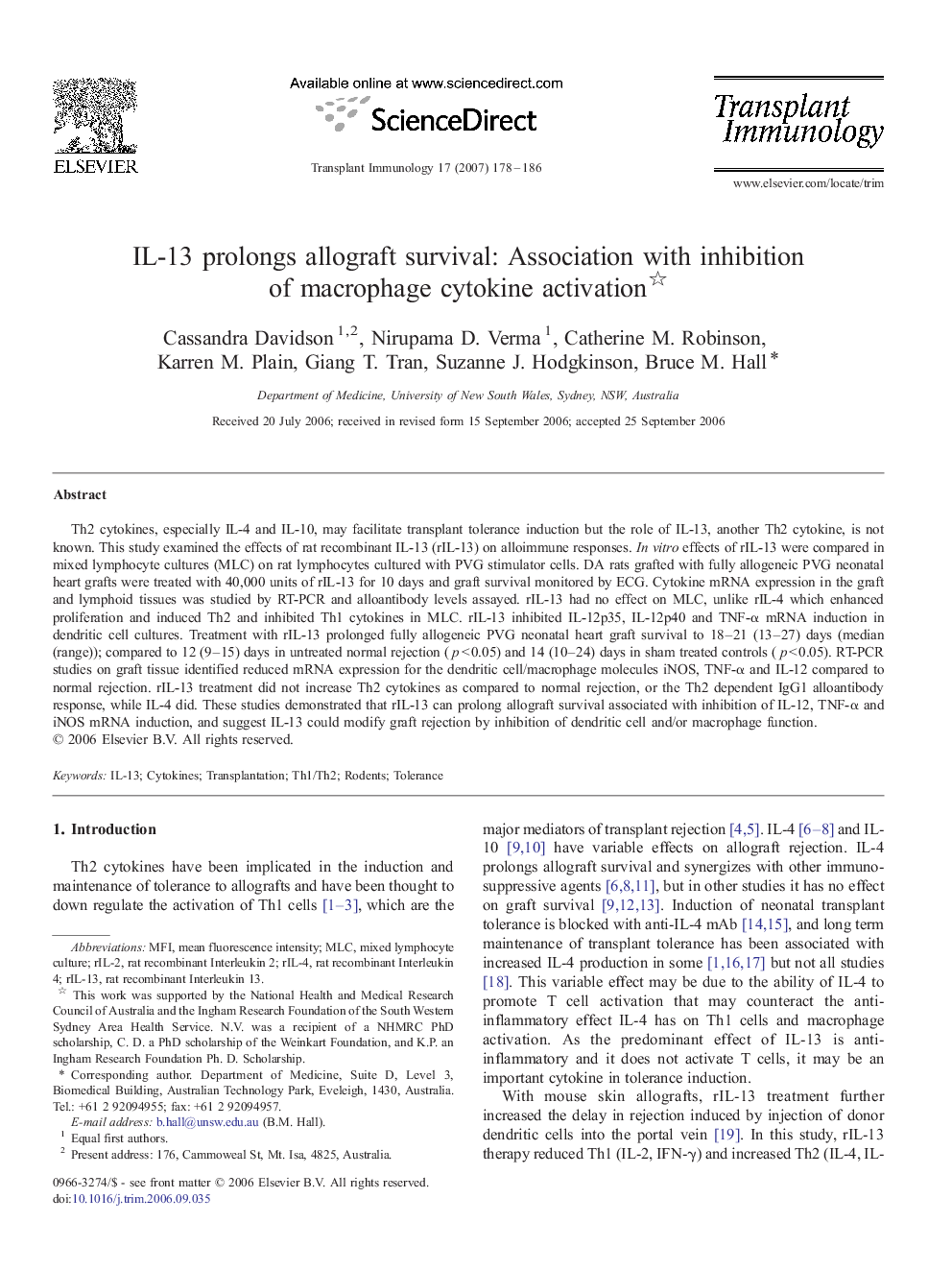| Article ID | Journal | Published Year | Pages | File Type |
|---|---|---|---|---|
| 3392701 | Transplant Immunology | 2007 | 9 Pages |
Th2 cytokines, especially IL-4 and IL-10, may facilitate transplant tolerance induction but the role of IL-13, another Th2 cytokine, is not known. This study examined the effects of rat recombinant IL-13 (rIL-13) on alloimmune responses. In vitro effects of rIL-13 were compared in mixed lymphocyte cultures (MLC) on rat lymphocytes cultured with PVG stimulator cells. DA rats grafted with fully allogeneic PVG neonatal heart grafts were treated with 40,000 units of rIL-13 for 10 days and graft survival monitored by ECG. Cytokine mRNA expression in the graft and lymphoid tissues was studied by RT-PCR and alloantibody levels assayed. rIL-13 had no effect on MLC, unlike rIL-4 which enhanced proliferation and induced Th2 and inhibited Th1 cytokines in MLC. rIL-13 inhibited IL-12p35, IL-12p40 and TNF-α mRNA induction in dendritic cell cultures. Treatment with rIL-13 prolonged fully allogeneic PVG neonatal heart graft survival to 18–21 (13–27) days (median (range)); compared to 12 (9–15) days in untreated normal rejection (p < 0.05) and 14 (10–24) days in sham treated controls (p < 0.05). RT-PCR studies on graft tissue identified reduced mRNA expression for the dendritic cell/macrophage molecules iNOS, TNF-α and IL-12 compared to normal rejection. rIL-13 treatment did not increase Th2 cytokines as compared to normal rejection, or the Th2 dependent IgG1 alloantibody response, while IL-4 did. These studies demonstrated that rIL-13 can prolong allograft survival associated with inhibition of IL-12, TNF-α and iNOS mRNA induction, and suggest IL-13 could modify graft rejection by inhibition of dendritic cell and/or macrophage function.
